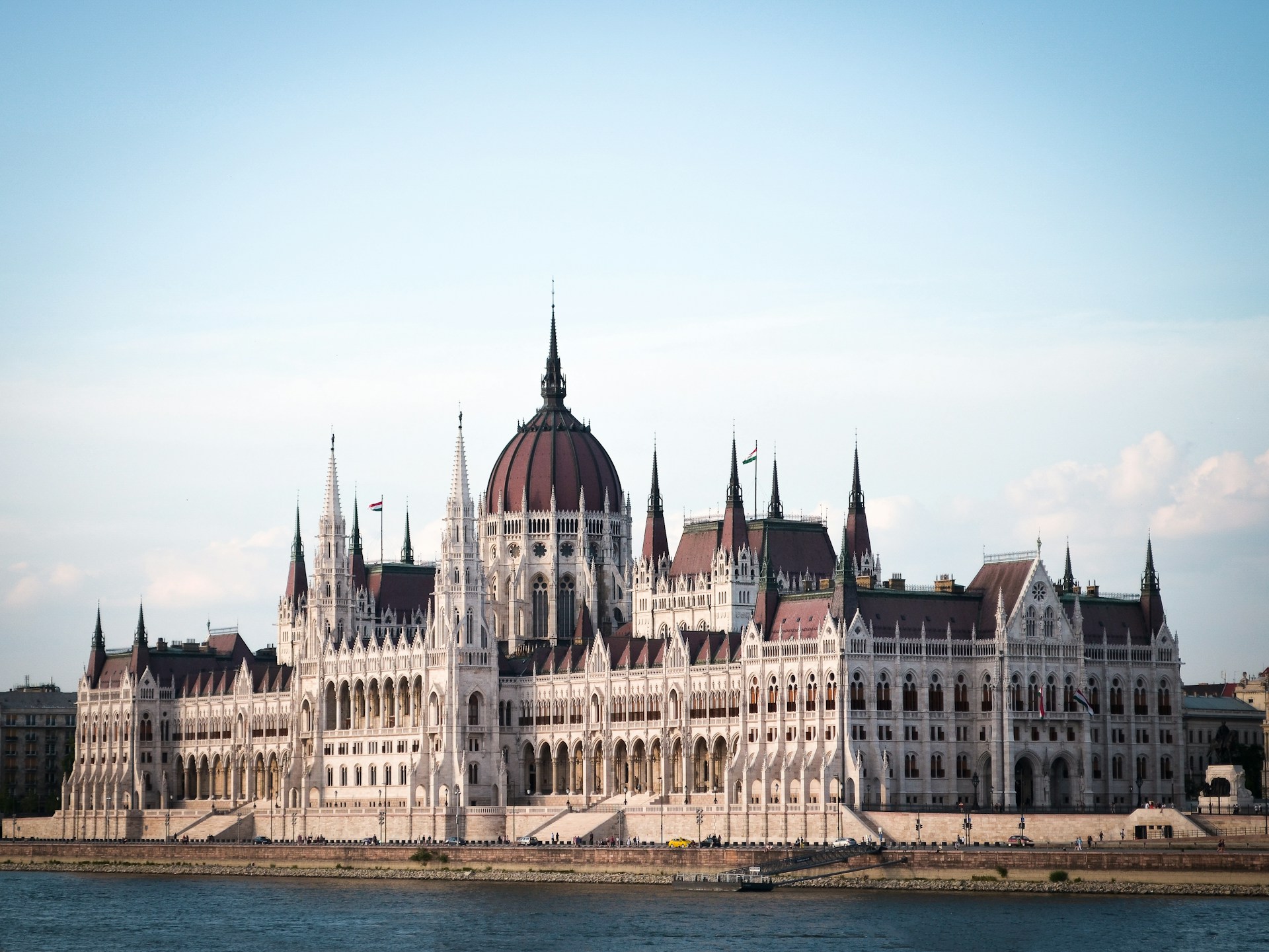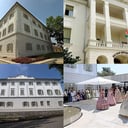
Budapest’s Parliament throws open its gilded doors almost every day, welcoming around 700,000 visitors a year into the home of Hungary’s National Assembly. Guided tours — with expert, multilingual guides or an audio guide — depart from the Visitor Centre and cover the building’s showpiece halls in about 45–50 minutes, including security and entry. For more than a century, this vast Neo-Gothic palace has witnessed soaring triumphs and dark turns alike, and it’s not shy about showing off the drama in full splendor.
When and where
Tours run daily between 8:00 and 16:00 from November 1 to December 31, 2025 (Kossuth Square, District V). Groups depart every day from the Visitor Centre between 8:00 and 16:00. Opening hours throughout the year: January 1–March 31: 8:00–16:00; April 1–October 31: 8:00–18:00; November 1–December 31: 8:00–16:00. Visits may be canceled at short notice due to parliamentary programs or state protocol events.
The tour route
Climb the lavishly gilded Staircase XVII, one of 28 staircases, up to the principal floor. Statues and stained-glass windows line a richly painted city corridor with fine views over the renewed Kossuth Square, the nation’s main square.
Step into the Grand Staircase, one of the building’s true jewels. A red-carpeted sweep of 96 steps rises from the main entrance to the Dome Hall. Overhead, three paintings by Károly Lotz dominate the ceiling. The hall is guarded by eight colossal granite columns, each weighing about 8,818 pounds — there are only 12 of their kind on Earth. On both sides, ornate stained-glass windows from Miksa Róth’s workshop glow in the light.
The route flows into the Dome Hall, the building’s geometric and symbolic heart. Since January 1, 2000, the Holy Crown of Hungary and the coronation regalia — among Europe’s oldest such ensembles — have been on display here under the 24/7 watch of the Crown Guard. The hall soars to nearly 27 meters (about 88.6 feet). Its lowest level is ringed by a circular gallery beneath a magnificent 16-ribbed star vault fitted with slender, colorful windows. At the base of clustered pillars, statues of Hungarian rulers stand with their pages on gilded plinths beneath golden canopies.
Upper House lounge and chamber
Beyond the Dome Hall lies the former Upper House lounge. Statues representing crafts, trades, and sciences are made from pirogranite, a pioneering material of its time, crafted at the Zsolnay factory in Pécs. Underfoot spreads Europe’s largest hand-knotted carpet, shimmering in turquoise.
The former Upper House chamber comes next — today a venue for conferences, student programs, and major ceremonies since the assembly became unicameral. Expect lavish gilding, a coffered ceiling of Slavonian oak, and 453 seats arranged in seven horseshoe rows of brown, green, and red desks and benches. The acoustics are superb. Two levels of galleries run around the side walls, while a monumental oak presidential and orators’ dais dominates the horseshoe’s base. Painted coats of arms of Hungary’s ruling dynasties fill the main wall, flanked by murals highlighting the historic role of the nobility.
Exhibition and extras
Wrap up in the Neÿ Béla Room, where an exhibition tells the Parliament’s story. Look for the red star that once crowned the dome, one of the copper warrior statues that also functioned as lightning rods, a 1:100 scale model of the building, and a display on the roughly 50 centrally controlled clocks. Ten themed screens take you behind the scenes to spaces not seen on the walk, showcase technical solutions, and visualize the palace’s construction.
Languages and formats
Tours are available with guides or audio guides in Hungarian, English, French, German, Italian, Russian, and Spanish. Audio guide only: Polish, Slovak, Croatian, Hebrew, Romanian, Serbian, Ukrainian, Korean, Portuguese, Arabic, Slovenian, Czech, Chinese, Japanese, Bulgarian, Turkish, Dutch, Greek, and Vietnamese. For mixed audio guide groups, you choose your language on entry.
Tickets and prices
On-site purchases only on the day of your visit; advance reservation requests must be emailed. Eligibility for discounts must be proven at purchase or entry (for online pre-buys). Children under 6 enter free.
– Discounted for Hungary and EEA citizens: 6,500 HUF (about 17.8 USD)
– Discounted for Hungary and EEA students (ages 6–24): 3,250 HUF (about 8.9 USD)
– Visitors from outside the EEA: 13,000 HUF (about 35.6 USD)
– Students from outside the EEA (ages 6–24): 6,500 HUF (about 17.8 USD)
Family tickets (at least one child aged 0–14, with one or two accompanying adults; EEA residence permits accepted; proof required). If your child is under 6 and you need a family ticket, request it via email:
– EEA citizens: Adult (max 2): 4,550 HUF (about 12.5 USD); Child 6–14 (max 3; extra 3 with valid NOE card): 2,275 HUF (about 6.2 USD)
– Non-EEA: Adult (max 2): 10,400 HUF (about 28.5 USD); Child 6–14 (max 3): 5,200 HUF (about 14.2 USD)
Security and house rules
Security screening is mandatory. No large bags or items that could cause injury (knives, blades, gas spray). Weapons, ammunition, explosives, explosive devices, or pyrotechnics are banned.
In hand luggage, only colorless soft drinks, liquid medicine, and special foods (baby food, formula) are allowed, in an unbreakable plastic bottle up to 0.5 liter (about 16.9 oz). Present these at screening; larger or other containers must go in the cloakroom.
Cameras and video are allowed, except in the security screening area and the Dome Hall, where photography is prohibited to protect the Holy Crown.
The building is accessible; wheelchair users should email ahead for smooth entry. Only guide dogs are permitted. Public restrooms are at the Visitor Centre entrance. No parking at the Visitor Centre.
Visitors who have undergone therapeutic radioactive isotope treatment must present a discharge report confirming the isotope type, name, administration time, and that the person may be in public. Without it, the Parliamentary Guard may deny entry.
Dress and conduct
No totalitarian symbols; no disrespect toward Parliament, the Holy Crown, the regalia, or human dignity. No flags or protest tools, no loud behavior, singing, or demonstrations. No eating, drinking, or smoking inside. Don’t sit, kneel, or lie on stairs, floors, or furnishings; don’t damage anything; don’t disturb staff or operations. No noise-making devices like whistles or megaphones. Dress respectfully: the Parliament’s dignity demands it. Follow staff instructions — fail to comply, and you’ll be escorted out.





